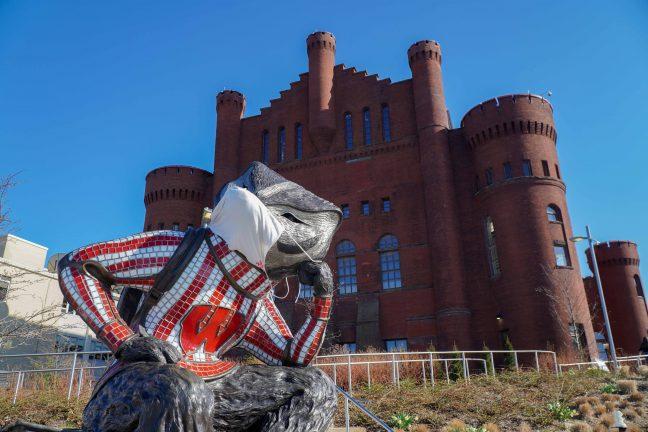University of Wisconsin graduate students were not given the opportunity to give input on the university’s decision to lift the mask mandate by March 12, according to UW graduate student Jack Phillips.
The Teaching Assistants Association, a graduate student worker union, held a sit-in outside UW Chancellor Rebecca Blank’s office to demand the university shift to online instruction for the first two weeks of semester. The TAA was joined by the UW BIPOC Coalition, student government leaders and the UW-Madison Labor Council.
During the sit-in, the chief of staff for the Vice Chancellor of Student Affairs Argyle Wade said any student who wishes to voice concerns over COVID-19 policies can go through the Associated Students of Madison or join to COVID-19 Student Advisory Board.
Shared Governance Chair Reez Bailey appointed Phillips to the COVID-19 Student Advisory Board two days after the TAA sit-in, on Jan. 26. Following Phillips’ appointment, Student Affairs Vice Chancellor Lori Reesor changed the description of the COVID-19 Student Advisory Board Jan. 28 to specify it would be for undergraduate students. Graduate workers who wish to provide input could join a different board meant for graduate students, chaired by Graduate School Dean William Karpus.
“I am pursuing an appointment for Jack Phillips on the Graduate School Dean’s Advisory Committee, and that’s something that Wade and I discussed today and something that I’m hoping to move forward with because graduate students do need to be involved in this conversation explicitly around COVID-19,” Bailey said in an interview with The Badger Herald on Feb. 11.
Graduate students are allowed to serve on the COVID-19 Student Advisory Board, according to Wade, but the board does not discuss issues specific to teaching assistants that may not pertain to undergraduates.
In a Feb. 11 email, Wade said there had been “miscommunication” and graduate and professional students can serve on the COVID-19 Student Advisory Board — though the board does not discuss issues specific to teaching assistants that may not pertain to undergraduates.
For graduate student-related issues, graduate students can join the Graduate School Dean’s Advisory Board, which has existed before the COVID-19 pandemic and has been the main avenue for graduate student discussions about COVID-19, UW spokesperson Meredith McGlone said in an email statement to The Badger Herald.
ASM Shared Governance appoints four students to the Graduate School Dean’s Advisory Board, in addition to eight students who come from other parts of the UW campus, Wade said in the Feb. 11 email. Phillips said they feel unsafe serving on the Graduate School Dean’s Advisory Board because of Karpus’ allegedly hostile and intimidating behavior, in addition to him appearing to briefly push a student into a door.
According to a Feb. 11 email from Phillips, the Graduate School Dean’s Advisory Board last met in December 2021 to discuss the leave of absence policy.
McGlone said the most recent discussions about masking were held with the COVID-19 Student Advisory Board but did not mention graduate students had been involved in the process. During these discussions, Jake Baggott, the executive director of University Health Services, and Wade were present, McGlone said. Despite Phillips’ appointment to the student advisory board, they were not invited to the meeting discussing lifting the mask mandate.
“We had a good discussion about the changing public health landscape and campus masking requirement,” Wade wrote. “Ultimately most of the students felt the campus should extend the current campus mask order.”
In a Feb. 16 press release, ASM said UW’s mask mandate ignores student opinions that were expressed through shared governance. All four student shared governance representatives on the COVID-19 Student Advisory Board voted to keep UW’s mask mandate in place until the end of spring semester.
“With regards to the recent decision to lift the UW mask mandate, there have been both negative and positive responses from students,” McGlone said in an email statement.
Professors and students have expressed concerns about students returning from spring break to in-person classes maskless.
ASM said UW’s policy decisions should include vulnerable students and staff, particularly those with health conditions that prevent them from safely participating in academics in the absence of masks.
The United Faculty and Academic Staff, referred to as UFAS #223, will hold an open meeting this Tuesday, Feb. 22 to mobilize in support of community care for children under five, those who do not want to contract and transmit COVID-19 and disabled and immunocompromised people.
Managing Editor Arushi Gupta contributed to this report.


